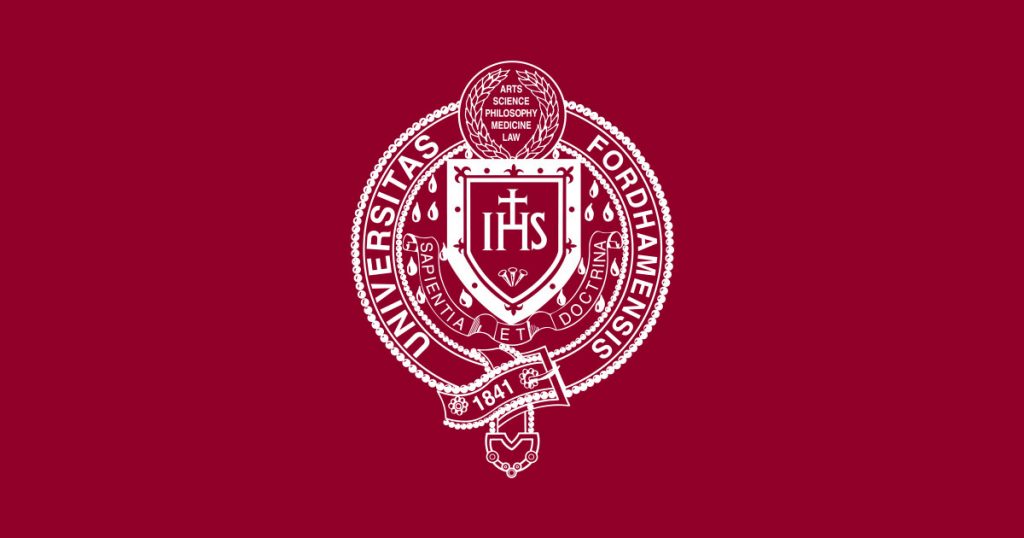Dear Fordham,
I was at Loyola New Orleans in 2018 when a gunman attacked the Tree of Life Synagogue in Pittsburgh. It was our Muslim Student Association members who immediately asked to organize a prayer vigil for Jewish students. They told me that they knew what it felt like to be afraid, to be violently attacked for their faith, to be treated as foreign and threatening in their own country. They wanted to console their friends in a way only they could do. In the midst of our collective grief, it was a moment of real grace.
Since October 7th, members of our Fordham community have faced deep trauma, losing both Israeli and Palestinian loved ones and worried for so many more. Watching the Hamas attacks on video and then the bombs dropping on Gaza, we agonize over the innocent lives lost and so much searing pain. For both communities, the ability for the rest of us to go about our daily lives without being consumed by that pain can feel like a real betrayal.
And we face this trauma without the consolation of unity, because the horror of what we witness also divides us. It is a moment for me (and many of the rest of you) when even the best-intentioned words (or silences) can cause more pain, more fear. It is a moment tearing apart many college campuses across this country.
We have had many moments of extraordinary grace at Fordham these last few weeks. For all of you ready to rage at the injustice of the world, I am in awe of the strength you have found to instead persuade and explain. I am beyond grateful for the faculty, staff, and students who have been rocks for your own communities—who have taken on that extra duty of consolation even as you process your own pain.
I have been listening hard to Palestinian and Jewish students, faculty, and staff. I need for the rest of us to understand how many members of our community feel physically afraid right now. This moment of vulnerability feels so terribly familiar to both, based on hate crimes in this country past and present, based on deep generational trauma.
I need for all of us to choose our words carefully right now, to know that many members of our community are listening to us and trying to decide if they can feel safe here. While we never abandon our commitment to the importance of free speech to challenge and push each other, this is a moment to remember the corresponding obligations of community. We do not threaten, even unintentionally. And we do not question each other’s humanity or belonging here.
Below is a description of some of the pragmatic things the University is doing at this moment and a list of resources. But we cannot get through this without the help of each and every one of you.
With fervent prayers for peace,
President Tetlow
Enhanced Security: We’re increasing Public Safety’s hypervigilance across campuses, while continuing to work in close consultation with the NYPD, monitoring any threats in the community.
Student Leader Listening Sessions: I have been meeting with student leaders representing those most impacted by the events to listen to your concerns firsthand and to discuss how we can ensure the continued safety and well-being of our campus communities.
Policy and Code of Conduct Enforcement: We will continue to enforce Fordham’s Non-Discrimination Policy and the University Code of Conduct, including the Bias-Related Incidents and/or Hate Crimes Policy, with a maximum emphasis on ensuring the safety and well-being of all students, faculty, and staff. This is a critical moment for the free exchange of ideas, but we must find a way to do that without threatening or demeaning other members of our community. Fordham University has a zero-tolerance policy for any instance of discrimination for students, faculty, and staff. If you believe you or another member of the University community has been the victim of discrimination, you are encouraged to contact Public Safety or submit an online report confidentially.
Having Difficult Conversations: The Provost’s Office, in collaboration with Student Affairs and Counseling and Psychological Services, has convened multiple discussions with faculty members seeking to facilitate difficult conversations in the classroom with empathy for people who are suffering.
Expanding Interfaith Support: The University has been in the process of hiring a Muslim chaplain/imam and Jewish chaplain/rabbi to expand Campus Ministry’s interfaith support and offerings. We are working to expedite this process to onboard these new members of our Campus Ministry team.
Support Resources: Counselors in the Counseling and Psychological Services offices at Rose Hill and Lincoln Center are on call and readily available to meet with students who are impacted by the war in Israel and Gaza. If you have an immediate need, call ahead for walk-in hours availability.
RESOURCES
Any member of the campus community who needs help can call Public Safety at (718) 817-2222: the phone is staffed 24 hours a day, 7 days a week.
Counseling and Psychological Services
Lincoln Center
140 West 62nd Street, Room G-02
Phone: (212) 636-6225
Rose Hill
O’Hare Hall, Basement
Phone: (718) 817-3725
Campus Ministry
Rose Hill
Campus Center | CMCE Suite 215
441 E. Fordham Rd.
Bronx, NY 10458
Phone: (718) 817-4500
[email protected]
Lincoln Center
Lowenstein 217
New York, NY 10023
Phone: (212) 636-6267
[email protected]
University Health Services
[email protected]
Lincoln Center: (212) 636-7160
Rose Hill: (718) 817-4160
Residential Life
Resident Directors during business hours and Resident Assistants on duty overnight and on weekends:
Rose Hill: (718) 817-3085
[email protected]
Lincoln Center: (212) 636-7100
[email protected]
Student Involvement
Commuter Assistants and staff working with student clubs and organizations:
Rose Hill: (718) 817-4370
[email protected]
Lincoln Center: (212) 636-6250
[email protected]
Deans of Students
Rose Hill: (718) 817-4755
[email protected]
Lincoln Center: (212) 636-6250
[email protected]


